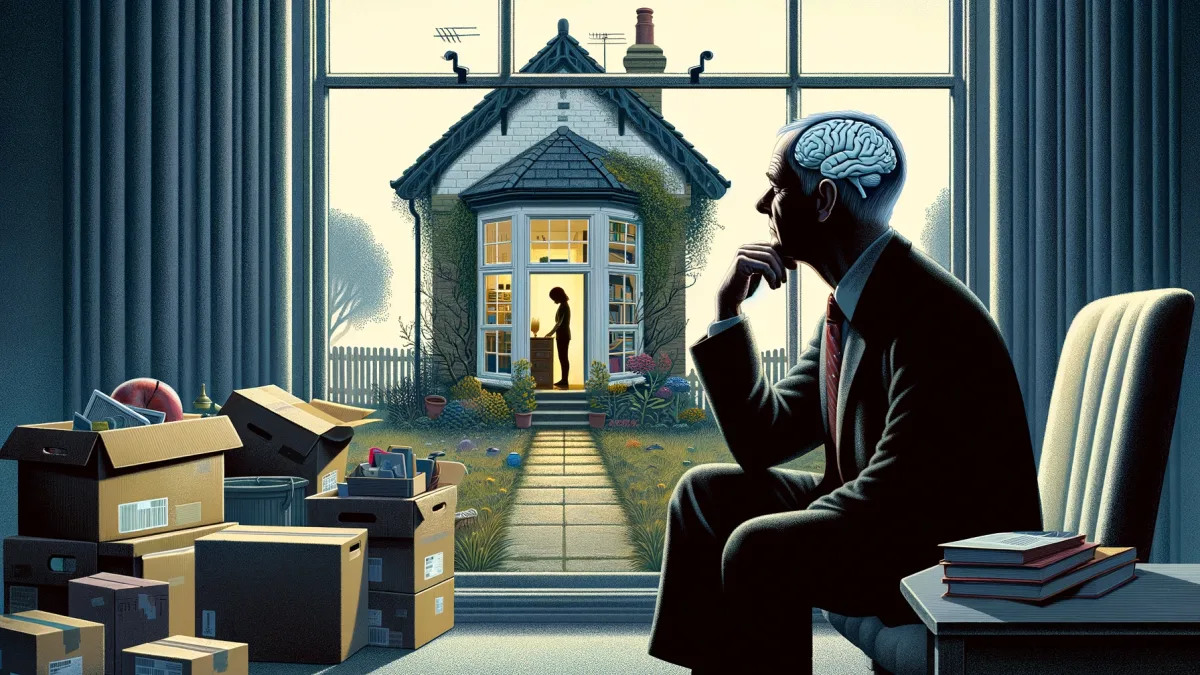In the quiet aftermath of a neighbor’s death, a tapestry of grief and responsibility began to unfold, weaving itself into the lives of those left behind. Among them, a figure emerged, carrying the weight of loss and an unexpected burden that was yet to be recognized. She was the companion of the deceased, a woman who, despite residing in a rural town an hour away and having but a slender thread of connection to us, found herself bound to the memory of the man she spoke with daily. Her request was simple yet profound: to watch over the now silent home that stood as a testament to their shared moments, a place she was destined to inherit.
As time meandered on, her visits became more frequent, each one an attempt to sift through the remnants of a life cluttered with possessions, revealing a hidden struggle with hoarding that she now faced alone. It was during these moments of sorting and decision-making that her plight became evident, not just in the overwhelming task at hand but in the subtle signs of a battle she was unwittingly fighting against her own body. Her movements were slow, her decisions fraught with hesitation, and her stamina waned as the hours passed.
Observing from the sidelines was a retired neurologist, who, through the lens of his expertise, began to piece together a puzzle that extended beyond the visible struggles. What initially appeared as symptoms of grief and emotional fatigue soon revealed themselves to be indicative of something far more concerning. Through the days spent in her company, his professional instincts led him to a troubling realization: she was likely suffering from Parkinson’s disease, a diagnosis yet to be made but one that he, given his background, recognized with growing certainty.
The revelation brought with it a moral quandary. With no prior occasion to disclose his professional background, he found himself at a crossroads, contemplating whether to share his clinical impressions with her. The potential benefits of early treatment with oral medication stood as a beacon of hope, a chance to improve her quality of life in a time clouded by loss and the daunting task of sorting through a life’s worth of possessions. Yet, the path to such care was fraught with uncertainties, from her access to skilled neurological care to her willingness to seek it amidst her current turmoil.
Complicating matters was the neurologist’s own hesitation, stemming from the absence of an explicit invitation into the more personal facets of her life, and the recognition that he could not offer the supportive doctor-patient relationship she would need. His wife, however, saw the situation through a lens of compassion, advocating for him to share his observations, believing in the potential for treatment to significantly benefit her.
As he stood on the precipice of this decision, the retired neurologist pondered the delicate balance between professional duty and personal boundaries, the ethics of intervening in a life already marked by loss and upheaval. The question loomed large: Should he step forward with his suspicions, or remain silent, a guardian of a secret that could alter the course of her life? It was a dilemma that weighed heavily on his heart, seeking counsel in a sea of uncertainty. What path should he choose?









Leave a Reply